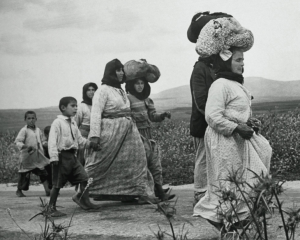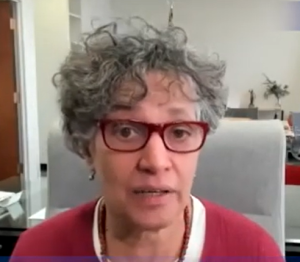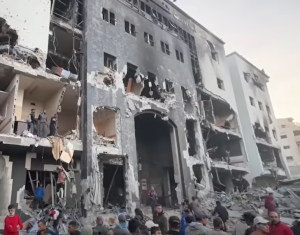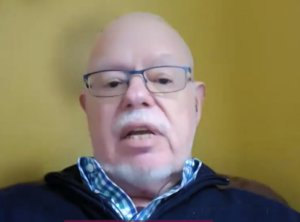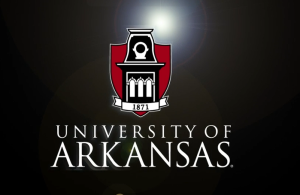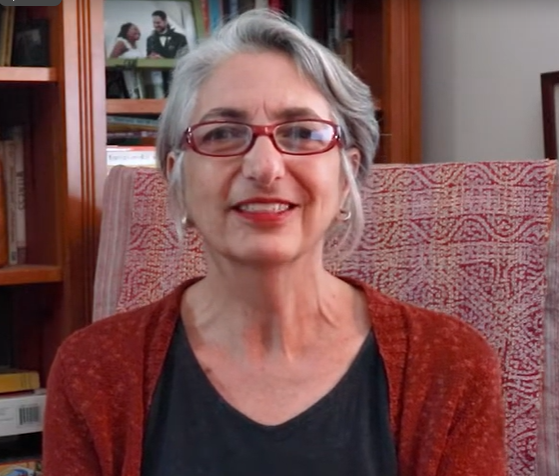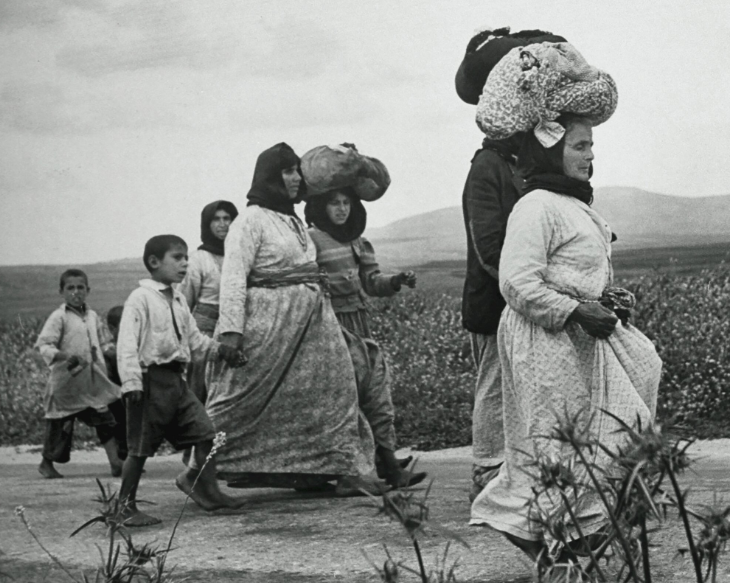3 November 2025
The recent rise of extreme right-wing populist parties in Europe and the Americas is due to the convergence of several factors, including opposition to increasing immigration of different ethnic, racial and religious peoples, the decline in political vitality on account of the globalised economy and rapidly increasing inequality of wealth and income. But at least equally important is the role of Zionist supporters who will stop at nothing to suppress criticism of Israel and support for Palestine.They finance populists who encourage hostility to “Islamists”. They seek to discredit progressive politicians and activists who promote justice for Palestine. They disrupt university activity by wielding antisemitism as a weapon against students and faculty. They pressure the police and politicians to suppress public demonstrations. And they extend their influence over mainstream and social media to distort public understanding of important events. The following account in Mondoweiss by Professor Amy Hagopian (pictured), a prominent victim of the damage they have caused to public life in America, illustrates what has been happening across the developed world.
Civil society should be resisting Trump’s authoritarianism. It’s succumbing to it instead.
My American Public Health Association membership was revoked after over 20 years because I protested for Palestine. As authoritarian norms spread in government, they are metastasizing into civil society institutions that should be resisting them.
By Amy Hagopian November 1, 2025
 President Donald Trump at the Trump Turnberry golf course in Turnberry, Scotland on July 28, 2025. (Official White House Photo by Daniel Torok)
President Donald Trump at the Trump Turnberry golf course in Turnberry, Scotland on July 28, 2025. (Official White House Photo by Daniel Torok)
This November, I’ll be standing outside the American Public Health Association’s annual meeting in Washington, D.C., holding a sign that reads: “Ask me why I’m not allowed inside the APHA meeting.” After more than two decades as a member — serving as editorial board chair of the American Journal of Public Health, as an elected section chair, and as a governing councilor — APHA revoked my membership in September, stripped me of my elected leadership position, and banned me from attending meetings for two years.
My offense? In November 2024, I participated in a protest at APHA’s Minneapolis meeting. Three dozen of us donned red latex gloves — signifying “blood on our hands” — and walked through the exhibit hall. We were protesting the executive board’s unanimous decision to block the governing council from even considering a resolution on Palestinian health justice, despite 90% of the council having approved a Gaza ceasefire statement the previous year.
An anonymous complaint deemed our protest “antisemitic and intimidating to Jewish members.” A three-person subcommittee held a 40-minute Zoom meeting with me — no written charges, no investigation, no witnesses interviewed, no appeal process — and issued my expulsion.
I could chalk this up to institutional cowardice or political pressure. But what’s happening at APHA is part of a broader and more alarming pattern: as authoritarian norms take hold in government, they’re metastasizing into civil society institutions that should be resisting them.
The dual state comes to America
In a recent Mother Jones article, Pema Levy highlighted Justice Ketanji Brown Jackson’s dissent in a case stripping lower courts of their ability to issue nationwide emergency relief from Trump administration policies. Jackson cited Ernst Fraenkel’s 1941 book The Dual State, written by a Jewish labor lawyer who escaped Nazi Germany in 1939.
Fraenkel described how Hitler created what he called a “prerogative state” — a zone of lawlessness where authorities could strip legal protections from disfavored groups — operating alongside a “normative state” where most people continued their lives under apparent rule of law. This dual structure allowed the regime to target Jews and other groups with arbitrary violence while maintaining an appearance of normal governance for everyone else.
We’re watching this dual state emerge in America. Federal troops patrol streets. Students are imprisoned for their views on Gaza. (And note, while we don’t know of any students imprisoned for their views on Gaza during the Biden administration, thousands were arrested, and some faced criminal charges related to their campus protests.) Professors are now fired for social media posts critical of right-wing figures. Comedians lose jobs for jokes that hit too close to home. And crucially, civil society institutions — universities, professional associations, medical organizations — aren’t resisting these authoritarian moves. They’re adopting them.
Universities: resistance and capitulation
The university response to Trump administration pressure has been mixed.
Over the summer, several universities scrambled to settle with the administration to protect federal grants they’d already budgeted for, agreeing to crack down on faculty and student speech. In April, Harvard initially appeared to capitulate, laying out policy changes the administration lauded as “a positive first step.” But when the White House froze over $2 billion in Harvard grants in mid-April after the university refused to eliminate DEI programs and enact other demanded changes, something shifted.
In October, the administration sent its “Compact for Academic Excellence in Higher Education” to nine prominent universities, offering preferential federal funding in exchange for sweeping policy changes: cap international students at 15%, freeze tuition for five years, ban DEI, require gender-restrictive bathroom policies, and revise governance structures that “stifle free speech.” The administration set an October 21 deadline.
So far, no university has agreed to the compact, though the University of Texas signaled it was “open to it.”
MIT became the first to publicly refuse on October 10. President Sally Kornbluth wrote that the compact “includes principles with which we disagree, including those that would restrict freedom of expression and our independence as an institution.” She added, “The premise of the document is inconsistent with our core belief that scientific funding should be based on scientific merit alone.”
By the deadline, six of the original nine universities had rejected the compact: MIT, Brown, Penn, USC, UVA, and Dartmouth. Faculty and students had flooded administrators with demands to refuse. More than 500 Dartmouth faculty signed a petition. Students rallied at Brown. California Governor Gavin Newsom threatened to cut state funding to any California university that signed, declaring the state would not, “bankroll schools that sell out their students, professors, researchers, and surrender academic freedom.”
This university resistance matters — but it came only after months of capitulation, and only at well-resourced elite institutions with sufficient endowments to risk federal retaliation. The dual state logic still applies: some institutions have resources to resist the prerogative state’s demands. Others — less elite universities, contingent faculty, international scholars, students on visas — exist in the zone of vulnerability where resistance carries unsustainable costs.
The dual state operates differently for individuals who lack institutional protection. While elite universities can reject federal compacts, individual workers face immediate consequences for dissent. Erin Donevan was fired from Bishop O’Dowd High School in Oakland for wearing a small “Free Palestine” pin. Palestine Legal’s May 2024 report documented what it called “the most severe politically motivated repression in the workplace since at least the Vietnam War.”
Professional associations fall in line
Medical and scholarly associations, which should provide professional protection and ethical leadership, are instead mirroring the authoritarian turn.
In April 2025, the British Medical Association (BMA) canceled a speech by Dr. Swee Chai Ang, founder of Medical Aid for Palestinians, claiming her views were antisemitic. Dr. Ang, an orthopedic surgeon with a 48-year career in Britain’s National Health Service, survived the 1982 Sabra-Shatila massacre during Israel’s invasion of Lebanon and has spent decades volunteering with MAP. The BMA banned her from speaking at its annual medical student conference.
A study published in October 2024 in Medicine, Conflict & Survival surveyed 651 UK-based Muslim healthcare providers: 93% felt censored from expressing legitimate concerns about health conditions in Gaza, anticipating negative professional repercussions.
In the United States, the American Historical Association’s executive body overturned an 85% member vote in January 2025 on a “Resolution to Oppose Scholasticide in Gaza.” The Modern Language Association executed similar anti-democratic maneuvers. The American Psychological Association leadership discouraged internal groups from advocating for a humanitarian ceasefire.
The pattern is consistent: association members, given the chance, vote for statements consistent with their professional ethics. Leadership blocks or overturns these votes, citing political sensitivity or claims of antisemitism. Dissenters face professional consequences.
Another pattern emerges: much of the crackdown on dissent and speech is clustered around the Israeli occupation and destruction of Palestine. Palestine serves as a crucible. A metaphor for a challenging situation that tests character and morality, Arthur Miller’s play by that name explored the Salem witch trials, but was meant to serve as allegory for the McCarthy-led Red Scare.
APHA’s case is particularly striking because the organization’s own Code of Ethics requires practitioners to “remediate structural and institutional forms of domination that arise from inequalities related to voice, power, and wealth.” The organization has failed repeatedly over 15 years to address how Israeli occupation undermines Palestinian health — and now expels members who try to uphold these very principles.
The prerogative state expands
This is how the dual state functions. Most APHA members will attend the November meeting without incident, presenting their research, networking with colleagues, experiencing the “normative state” where professional norms apply. Meanwhile, I’ll be outside — expelled without due process, stripped of an elected position, denied the right to receive a lifetime achievement award from my own section.
The arbitrary nature of the punishment is the point. When institutions abandon transparent procedures — replacing them with anonymous complaints, secret tribunals, and no appeals — they create the prerogative state within their own walls. Some people remain protected by organizational rules and norms. Others can be disappeared from professional life without explanation or recourse.
Civil society institutions exist precisely to create spaces for healthy debate and to stand strong against government suppression. When they instead adopt authoritarian methods — punishing speech, overturning democratic votes, abandoning due process — they don’t just fail to resist the encroaching prerogative state. They become part of it.
What’s at stake
The risk isn’t just to individuals like me, Dr. Ang, or Erin Donevan. When professional associations abandon their ethical mandates in response to political pressure, they lose their legitimacy as independent voices on matters of public importance. When they silence advocacy for health during humanitarian crises — precisely when professional expertise matters most — they render themselves irrelevant to the urgent questions of our time.
More fundamentally, the spread of dual state logic into civil society accelerates democratic collapse. If universities, professional associations, and medical organizations normalize arbitrary punishment, secret proceedings, and ideological litmus tests, they’re not just capitulating to authoritarianism. They’re teaching it, modeling it, making it feel normal.
This November, I’ll stand outside APHA’s meeting hoping to inspire members to demand more democratic processes, transparent procedures, and the courage to fulfill our professional obligations even when politically inconvenient. The alternative — a civil society that mirrors rather than resists the prerogative state — is a future where professional protections apply only to the politically compliant, and everyone else exists in a zone of lawlessness.
That’s not a professional association. That’s a protection racket.
Amy Hagopian
Amy Hagopian is a professor emeritus in the School of Public Health at the University of Washington. Her academic work has focused on how the maldistribution of power and wealth undermines health. She led a study estimating the war-related mortality for Iraq in 2011 and taught for nine years a class on war and health. She’s served as chair of the editorial board of the American Journal of Public Health and is was (until excommunicated in September of 2025) chair of the International Health Section of the American Public Health Association. She received the APHA’s prestigious Sidel-Levy award for Peace in 2018.


